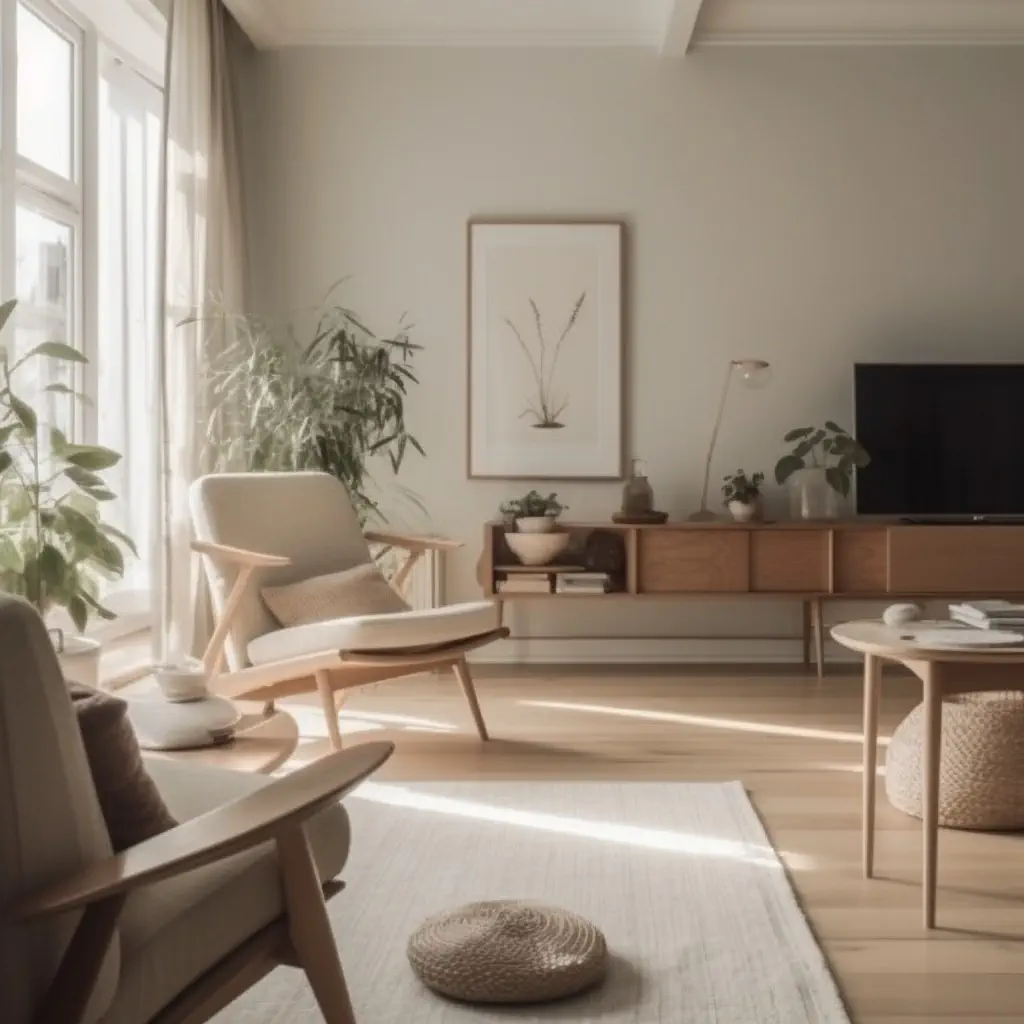
Introduction
Welcome to this article on why minimalism is the secret to happiness. In a world filled with excess and constant stimulation, the concept of minimalism, which focuses on living with less, has become increasingly popular. At its core, minimalism is about focusing on the things that truly matter in life and eliminating distractions that prevent us from experiencing true happiness.
Throughout this article, we’ll explore the benefits of minimalism, how it leads to happiness, objections people may have towards minimalism, and practical steps you can take towards incorporating minimalism into your life.
By the end of this article, you’ll have a deeper understanding of why minimalism can be the key to unlocking a happier, more fulfilling life. Let’s get started.
Benefits of minimalism
Minimalism offers several benefits that contribute to overall well-being, including:
-
Simplifies life: Living with less allows for fewer distractions and more clarity on what truly matters. It’s easier to make decisions and prioritize responsibilities when there are fewer possessions and commitments to manage.
-
Reduces stress: The clutter and chaos of a busy life can lead to stress and overwhelm. By decluttering your space and simplifying your schedule, you’ll create a more peaceful environment that reduces stress and anxiety.
-
Creates more room for meaningful experiences: With fewer possessions and distractions, minimalism frees up time and space for experiences that bring joy and fulfillment. Instead of spending time on accumulating more things, you can focus on building relationships, pursuing hobbies, and exploring new opportunities.
-
Allows for deeper connections: When possessions aren’t the priority, relationships become more meaningful. Minimalism encourages us to prioritize the people in our lives and focus on quality over quantity. By being intentional and present in our interactions, we can cultivate deeper connections and forge lasting bonds.
Overall, adopting a minimalist lifestyle promotes a sense of freedom and happiness that comes from living with less. By simplifying your life, you can improve your mental and emotional wellbeing, and focus on the things that truly matter.
How minimalism leads to happiness
Minimalism leads to happiness because it simplifies lifestyle, reduces stress, creates more room for meaningful experiences, and allows for deeper connections.
Simplifies life
One of the ways minimalism leads to happiness is by simplifying one’s life. By reducing the number of possessions, responsibilities, and obligations, one can focus on what is truly important. This simplicity makes life less complicated and chaotic, leading to greater ease of living and contentment.
Reduces stress
Minimalism also reduces stress. When there is less clutter, people tend to feel more in control of their lives. A cluttered environment can lead to feelings of anxiety, depression, and fatigue, whereas a minimalist environment can create a calming effect.
Creates more room for meaningful experiences
Minimalism creates more room for meaningful experiences in life. When people are not bogged down by possessions or excessive commitments, they have more time and energy to focus on experiences and relationships that are valuable and bring joy. This opens up opportunities to live more fully and enjoy the simple pleasures in life.
Allows for deeper connections
Minimalism also leads to deeper connections with others. By focusing on meaningful relationships, rather than material possessions, people can develop more genuine and fulfilling connections. These connections are not based on what people have, but on who they are, leading to a greater sense of well-being.
Overall, minimalism leads to happiness by simplifying life, reducing stress, creating more room for meaningful experiences, and allowing for deeper connections. By embracing minimalism, people can experience greater contentment and joy in their lives.
Objections to minimalism
Minimalism is not without its critics, with some people voicing concerns that it’s not for them. Here are some common objections to minimalism:
- Fear of missing out
Some people fear that by giving up possessions, they’ll miss out on experiences or opportunities. They worry that they won’t have the tools or resources to take advantage of opportunities when they arise.
This fear is unfounded, however, as minimalism doesn’t mean living without anything. Instead, it’s about living with purpose and intention and focusing on what’s truly important. Minimalists can still have hobbies, interests, and projects, but they approach them with more mindfulness, ensuring that they’re in line with their values and goals, and not just something to fill their time.
- Sentimental attachments
Many possessions hold sentimental value, such as family heirlooms, gifts, or memorabilia. Some people worry that by getting rid of these things, they’ll lose these memories or connections.
While this is a valid concern, minimalism doesn’t mean getting rid of everything sentimental. Instead, it encourages people to carefully curate their belongings, ensuring that what they keep reflects their values and brings them joy. It also encourages people to create memories that aren’t tied to material possessions, such as experiences or traditions.
- Belief that possessions bring happiness
Some people believe that possessions bring happiness. They think that having more stuff will lead to a greater sense of satisfaction and security.
This is a common misconception, as studies have shown that material possessions contribute very little to happiness beyond a certain point. In fact, excess possessions can create stress and clutter, leading to a sense of overwhelm and dissatisfaction. Instead, minimalism encourages people to focus on experiences and relationships, which are proven to bring long-lasting happiness.
Overcoming objections
Each of these objections has a valid point, and it’s true that minimalism isn’t for everyone. However, for those who are interested in living a simpler, more intentional life, there are practical ways to overcome these objections:
-
Fear of missing out: Instead of worrying about what might be missed, focus on what’s gained by simplifying life. Think about the freedom, time, and mental space that will be available once possessions are streamlined.
-
Sentimental attachments: Start with decluttering the easy stuff, and work up to the more challenging items. Consider taking photos of sentimental items before giving them away. Focus on preserving the memories and emotions behind the item, rather than the item itself.
-
Belief that possessions bring happiness: Try an experiment where possessions are scaled back for a set period of time, and the focus shifts to experiences and relationships. Keep a journal to document any changes in mood or outlook.
By addressing objections head-on and taking practical steps, it’s possible to incorporate minimalism into daily life and reap the benefits of simplicity and intentionality.
Objections to minimalism
Some people may have objections to adopting a minimalist lifestyle. These objections can include:
Fear of missing out
Many people fear that by living with less, they will miss out on experiences or opportunities they would have had if they had more possessions. However, the reality is that minimalism can actually make room for more meaningful experiences and connections. By letting go of unnecessary possessions and commitments, you create space for more meaningful and important moments in your life.
Sentimental attachments
Minimalism requires letting go of items that are no longer necessary or useful. This can be difficult for people who have sentimental attachments to their possessions. However, it’s important to remember that memories are not tied to objects. You can still hold onto the memories associated with an item, even if you no longer have the physical object.
Belief that possessions bring happiness
Many people believe that possessions bring happiness. However, research has shown that material possessions only provide a temporary boost in happiness. In the long run, experiences and personal connections bring much more happiness. By embracing minimalism and focusing on experiences and connections, you can live a happier and more fulfilling life.
Overcoming objections
If you have objections to minimalism, there are ways to overcome them:
Addressing fear of missing out
To overcome the fear of missing out, it’s important to focus on the benefits of minimalism. By simplifying your life, you can reduce stress, create more room for meaningful experiences, and form deeper connections with others. Additionally, you can still pursue your hobbies and interests without accumulating unnecessary possessions.
Addressing sentimental attachments
To overcome sentimental attachments, start by letting go of items that are no longer necessary or useful. You can also take photographs of sentimental items to preserve the memories associated with them. Remember that memories are not tied to objects, and that letting go of possessions can be liberating.
Addressing belief that possessions bring happiness
To overcome the belief that possessions bring happiness, focus on experiences and connections instead. Pursue hobbies and interests that bring you joy, spend time with loved ones, and seek out new experiences. Consider the environmental and ethical impacts of excessive consumerism, and reflect on how your possessions align with your values.
Practical Steps towards Minimalism
Minimalism is not an all-or-nothing approach to life. It is about simplifying your life by getting rid of things that do not add value to your life. So, here are some practical tips that can help you get started with minimalism:
1. Start with a vision
The first step towards minimalism is to understand why you want to pursue it. What are the benefits that you hope to gain? What values do you want to prioritize? Visualize your ideal lifestyle and write it down. It will serve as a guide throughout your minimalism journey.
2. Declutter
Decluttering is an essential step towards minimalism. Start by sorting your possessions into categories such as keep, donate, sell, or trash. You do not have to do it all at once. Take it one room at a time, and go at your own pace.
3. One in, one out
To maintain a minimalist lifestyle, practice the “one in, one out” rule. For every new item you bring into your life, get rid of an old one. This rule helps to prevent clutter from building up again.
4. Simplify your wardrobe
Simplifying your wardrobe is a great way to start your minimalism journey. Get rid of clothes that no longer fit, are out of style, or that you haven’t worn in the last six months. Stick to a color scheme to make it easier to mix and match your outfits.
5. Digitize
Simplify by digitizing your life. Scan documents, store photos in the cloud, and get rid of any physical media that you don’t need. This tip will free up physical space and make it easier to access your important files.
6. Reduce screen time
Simplify your life by reducing screen time. Unplug from technology for a few hours each day or weekend. Instead of scrolling through social media, take a walk, read a book, or spend time with loved ones.
7. Buy what you need
To maintain a minimalist lifestyle, buy only what you need. Avoid impulse purchases, and before buying anything, ask yourself if it aligns with your vision.
Incorporating minimalism into your daily life will take time, so be patient with yourself. Remember, minimalism is not about depriving yourself but rather prioritizing what is essential and letting go of the rest.
Conclusion
In conclusion, minimalism is a powerful tool that can significantly contribute to a happier life. Through the benefits of simplifying our lives, reducing stress, creating more room for meaningful experiences, and allowing for deeper connections, minimalism paves the way for a more fulfilling life.
While objections such as the fear of missing out, sentimental attachments, and the belief that possessions bring happiness may deter some from pursuing a minimalist lifestyle, it’s important to understand that these objections can be overcome.
With practical steps such as getting started with minimalism, incorporating it into our daily routines, and addressing each objection with counterarguments and evidence, we can successfully adopt minimalism and reap its many rewards.
As we continue on our minimalist journey, let us remember that the path to a happy and fulfilling life is a personal one, and that we have the power to shape our own lives through our choices and actions. So let’s take a step towards minimalism today – who knows, it may just be the secret to our happiness.


